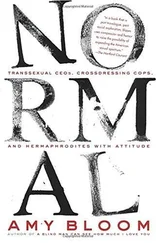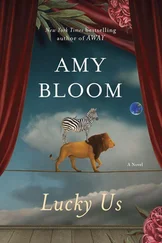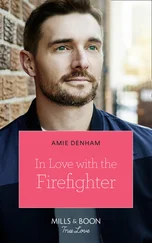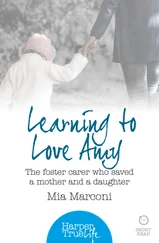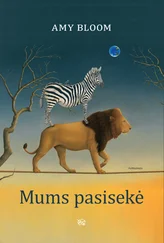“I’m glad he didn’t die alone. Oh, dearie, we both thank you,” Greta said. Dan grunted.
“What do you want me to do?” Elizabeth asked. She preferred not to have to move her stuff to a motel at five a.m., but the request would not surprise her, would not even strike her as unfair.
“Perhaps you can put his things in order, in the apartment. Marc is flying in tomorrow. He’s doing very well in Lyons now. Max must have told you. Well, Danny or I will call you about the, about the …” Greta waved her hands.
“All right. I’m so sorry. If I had realized you were still married, I would have told them to call you first.”
“Don’t be ridiculous, dearie.”
The nurse came for Greta, who made the smallest wave, a tilt of one open hand, as if they had never embraced, as if they’d barely traded names and hospital facts in front of the coffee machine and had not much cared for each other’s tone or outfit. Elizabeth put her hand over her mouth and walked slowly to the parking lot. The big list in her head was who she cannot call. She cannot call her mother, who will not be sorry anyway, she cannot call Huddie, she can call Rachel in London, but it hardly seems worth it to track her down through the maze of the London Hospital for Children, reaching out for Rachel over the bald heads of little cancer patients to tell her that someone she felt littered the planet was now dead. The easy list was clothing, books, records, kitchen stuff, furniture, plants, stereo system. She was determined to do a spectacular clean-up job.
Elizabeth parked in front of Nassau Produce, waiting for Huddie. He saw her sleeping in the front seat and was glad to see her, because this particular face, this being, with the long boy legs and the mole on her right shoulder blade, is his lifeblood. It’s not a source of pleasure right at this moment, that is just how it is . He’s fed up with her bad judgment, first the meeting in the apartment, causing him six kinds of grief since yesterday afternoon, and now, lying here in front of his store, not giving a damn that June might have dropped him off or that he might have brought Larry in for a croissant or that his early morning people, the walkers who came in for coffee and the widows who began their day buying breakfast fruit and stopped in before closing for a fancy frozen dinner, would see her sprawled across her front seat, obviously not giving a good goddamn that someone from his life, which she didn’t seem even to take into consideration, might see her and wonder.
He banged on the hood of her car, making more noise than he intended.
Elizabeth jumped up, her hair wild, her glasses still on but not quite resting on her nose. Huddie wanted to calm her down and he wanted to slap some sense into her.
“Max died,” she said, holding on to the steering wheel.
“I’m so sorry, sweetheart. Why don’t you get out of the car? Come on in and wash up and I’ll make us coffee.” It was the kind thing to do, it was also the most convenient and the least likely to destroy his life, which seemed highly perishable and sweet and in need of immediate care. Elizabeth wasn’t a weeper; it would probably be okay to set her up at the table near the back, even if other people came in.
Huddie filled two mugs with fresh coffee and put a pile of rugalach on a plate, although his impulse was to hand her a to-go cup and a muffin in a bag. He showed her the bathroom and hugged her before she closed the door. He said he was sorry about Max, and he was sorry about the old man, seemed like a sad end to a sad life, but the real issue was that Elizabeth was now free to leave and might require a reason to stay.
Sunday night, on the way home from the movies, Huddie’s arm began to tremble under Larry’s sleep-heavy head. June had lifted Larry’s head with one hand and folded up her sweater to make a pillow for him. Elizabeth doesn’t know how to do that. He can’t see her lifting Larry’s head so smoothly it seems to grow out of her fingers, can’t see her traveling with a comfortable sweater, extra kleenex, Life Savers, and a Frog and Toad book scrunched into a big vinyl purse.
June has four capacious, indestructible tote bags, in black, brown, navy, and bone. She is embarrassed and proud, too, defiant about her bags, all just like her mamas pocketbooks, and when they window-shop, she looks sideways at tiny evening bags with thin, pointless straps, jewel-studded bouquets, playful minaudières, and she shakes her head. “Not for the mother of Larry.” She doesn’t say anything about what the wife of Horace should wear. He won’t tell her, and she makes herself believe, whistling in the dark of love’s signless neighborhood, that he does like her, must love her, as Larry’s mother, and will then come upon her, and love her, as June.
She fell in love as he spun through Michigan, a hundred times handsomer than the other handsome boys, kinder than the other sports stars. Even girls he slept with only once had nothing bad to say about him. A big hello for everyone, putting his arm around every girl, including the plain and dull, as if it were a privilege and a pleasure, always making it clear that his singleness was not due to any shortcoming on their part, but entirely and only because he hadn’t been ready. And each woman knew that if he’d been ready, it would have happened with her. He attended eighteen weddings in four states the summer after his senior year.
June’s small circle barely overlapped his; her friends were Christian, future nurses and social workers and mothers, and they held themselves apart from the radical girls with wide Afros and new names and hoop earrings to their shoulders, and apart from the Black Power boys in tight jeans and berets, sexy and scary and wrong, and they held themselves apart from the white girls who were everywhere, Jewish girls with auburn Afros and little blue glasses on their long noses, Protestant girls with Breck-shampoo blonde hair, flat as silk to their skinny behinds, managing to apologize for that hair and still toss it around a room like Stardust. If June had not moved to Boston, by chance and because her mother’s best friend was director of a nursing program, she might have lost Huddie sooner. But she saw him play two games for the Celtics (her mother’s best friend was a fan, had touched the smooth hands of JoJo White and wept during John Havlicek’s last game), jumping to the very rim of the basket, above the heads of bigger men, and she saw him fall to the hardwood floor like wet laundry. She heard the snap before she saw him curl up, grey with pain, and although it broke her heart, she was reasonably sure he wouldn’t play again.
She had a girlfriend hand-deliver a sympathetic and encouraging card to his hospital room. She wrote Huddie about her old boyfriend who broke his knee and went on to play three more seasons (in high school and badly, she did not write) and sent a batch of oatmeal-raisin cookies. After two weeks, she sent another batch of cookies to his apartment with a friendly, dignified note on her own stationery suggesting the name of a good physical therapist. Finally he had to thank her, and as sweetly as she could, she kept him on the phone until a visit seemed in order. She was maid, secretary, cheerleader, and rehab assistant. She did not presume to call herself girlfriend, and when the model types were around she faded, and when they stopped coming, when his contract was not renewed and the Phoenix Suns went back on their offer and the Italians sent only a case of Barbaresco and their condolences, she made spaghetti with Italian sausage and listened while Huddie talked about red wine and the kind of restaurant he’d like to run. She finished nursing school and they were still together. And he had not found his feet in real estate or insurance or franchises and he didn’t sleep well or long. He never blamed anyone. June was happy to be pregnant, happy to be a pediatric nurse, happy to leave the terrible cold and terrible white people of Boston, happy to be handsome, kind Huddie Lester’s wife. She willed him to be happy with her.
Читать дальше


